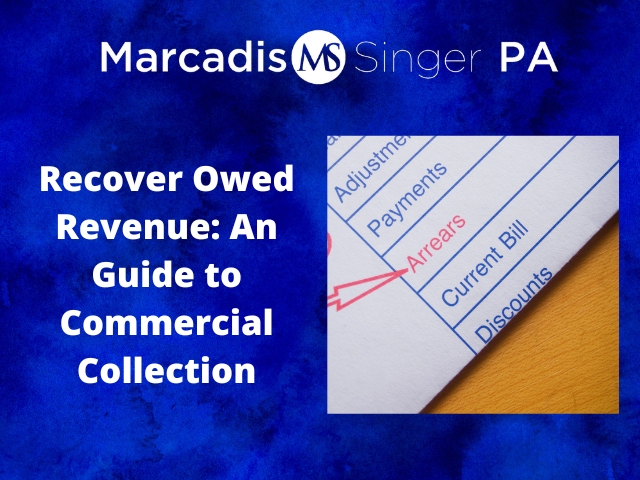Are you looking to get back the money you’re owed? You’re in the right place! In this guide, we’ll show you how to recover the revenue that’s rightfully yours. Whether it’s unpaid bills, overdue invoices, or outstanding payments, we’ve got you covered. Get ready to take control of your finances and ensure you receive the money you’ve earned.
The Landscape of Commercial Debt Collection
Uncollected debt directly affects a company’s bottom line and long-term viability. Unlike consumer debt, commercial debt often involves large sums owed by businesses with complex corporate structures.
Scope of the Issue
Over $3 trillion in B2B invoices go unpaid every year. For small businesses, 39% of revenue can be tied up in delinquent accounts.
Unique Challenges
Collecting from a business brings difficulties like navigating corporate entities, unknown decision makers, frequent mergers and acquisitions, and bankruptcies.
The following is a DRAMATIZATION AND IS NOT AN ACTUAL EVENT: ABC Construction signs a contract with 123 Stores Inc. worth $500,000. After completing 75% of the project, 123 Stores files Chapter 11 bankruptcy and informs ABC its contract is now void.
Applicable Laws
While consumer collections fall under regulations like FDCPA, commercial collections are not as strictly regulated but still require adherence to applicable laws. An experienced debt collection attorney understands the nuances in commercial debt law involving contract disputes, UCC filings, guarantor liability, bankruptcy limitations, and asset seizure protocols that influence the approach to securing repayment.
Strategies and Tools for Effective Commercial Collection
Demand Letters
Professionally drafted demand letters establish severity while leaving room for resolution. Letters should review terms, request immediate payment, and notify of upcoming legal action.
Litigation
The costs of litigation often motivate debtors to settle.Lawsuits also allow seizure of assets or accounts to fulfill debts. Knowing when litigation is worthwhile or likely to recover funds takes expertise, which a knowledgeable debt collection attorney can provide to determine if legal action will successfully compel payment.
Negotiations
Negotiating discounted settlements or extended repayment plans is sometimes advantageous compared to years of legal proceedings. Even a one-time partial payment creates future accountability.
Asset Investigations
Vetting a commercial debtor using public records, credit reports, industry data, and online searches paints a picture of their financial health and ability to pay debts. An experienced debt collection attorney has investigative tools to dig into assets and operations that an individual creditor does not.
Debt collection attorneys conduct asset searches to uncover hidden assets, including corporate structures and affiliated companies that could potentially share responsibility for the debt obligations. Background checks on officers and owners can reveal other businesses, properties, trusts, or personal bankruptcy filings that impact their capacity to pay.
Ongoing monitoring tracks patterns of past due payments, recent liens or judgments, cash flow issues, or fraud which demonstrate wider financial problems. Comparing financial statements over time highlights irregularities. The asset trail also identifies avenues for securing repayment should legal action commence.
Knowing where to uncover this explanatory information and appropriately incorporating it into a customized debt recovery strategy is where specialized legal professionals excel.
Bankruptcy Challenges
Though bankruptcies legally eliminate debt obligations, an attorney can help file paperwork to recoup losses during bankruptcy settlements. Commercial bankruptcies introduce many complexities.
With business bankruptcies, multiple corporate entities intermingle assets and liabilities across parent companies, subsidiaries, and affiliates. Determining the exact status of a debt obligation requires navigating this web of ownership interests. Securing any repayments hinges on asserting creditors’ rights early in bankruptcy proceedings.
Alternatively, when business owners file personal bankruptcy, creditors must act quickly to shield company assets. Attorneys can request conversions to Chapter 11 business restructuring or Chapter 7 asset liquidations depending on which allows better debt recovery. Negotiating repayment plans from future earnings also remains possible after discharge.
Specialized experience with lender negotiations, court trustee administrators, and timing nuances in bankruptcy case law can make or break the repayment potential. Skilled attorneys also watch for bad faith bankruptcy filings solely to delay creditor collection efforts, advising on appropriate legal counteractions.
In short, business bankruptcies need tailored handling to emerge with any commercial debt still collectible. Relying on an attorney well-versed in relevant regulations and strategies gives creditors a fighting chance to minimize losses from unpaid accounts.
Why Hire a Commercial Collection Attorney?
Expertise
Attorneys stay updated on business and bankruptcy laws that directly impact debt collection matters.
Legal Leverage
Attorneys can initiate lawsuits, settlements, and bankruptcy filings to compel payment in ways individual creditors cannot.
Credibility
Legally formal demands and court documents convey serious repercussions for unpaid debts.
Time and Focus
Specialized attorneys work solely on debt recovery without distraction from other business operations.
Customized Approach
Experienced attorneys tailor resolution strategies case-by-case based on debt circumstances.
In Summary
Trying to collect unpaid commercial debt yourself rarely yields favorable outcomes and takes precious time away from running your business. Partnering with a knowledgeable attorney levels the playing field using formal legal processes while you focus on operations.
Don’t write off substantial losses as an inevitable cost of doing business. An attorney can help protect your financial interests, recover lost revenue, and prevent future delinquent accounts through deterrence.
Contact our office today to discuss your situation with an attorney specializing in commercial collections. Take control of unpaid accounts to improve your bottom line.
FAQs
1. What debts can you assist with collecting?
We help recover unpaid B2B debt from breached contracts, unpaid invoices, business loans, franchise disputes, vendor & supplier issues, and more.
2. Is litigation always necessary for commercial debt recovery?
Not necessarily. Many cases reach equitable settlement through demand letters, negotiations, bankruptcy filings, or asset liens without needing prolonged court battles.
3. What collection methods do you utilize?
Our attorneys use demand letters, legal action filings & threats, UCC filings, corporate & personal guarantees, bankruptcy petitions, asset seizure and liquidation, investigative services, and negotiation strategies tailored to each case.
For a consultation with an attorney regarding your commercial debt situation, contact us at (813) 288-1881.
